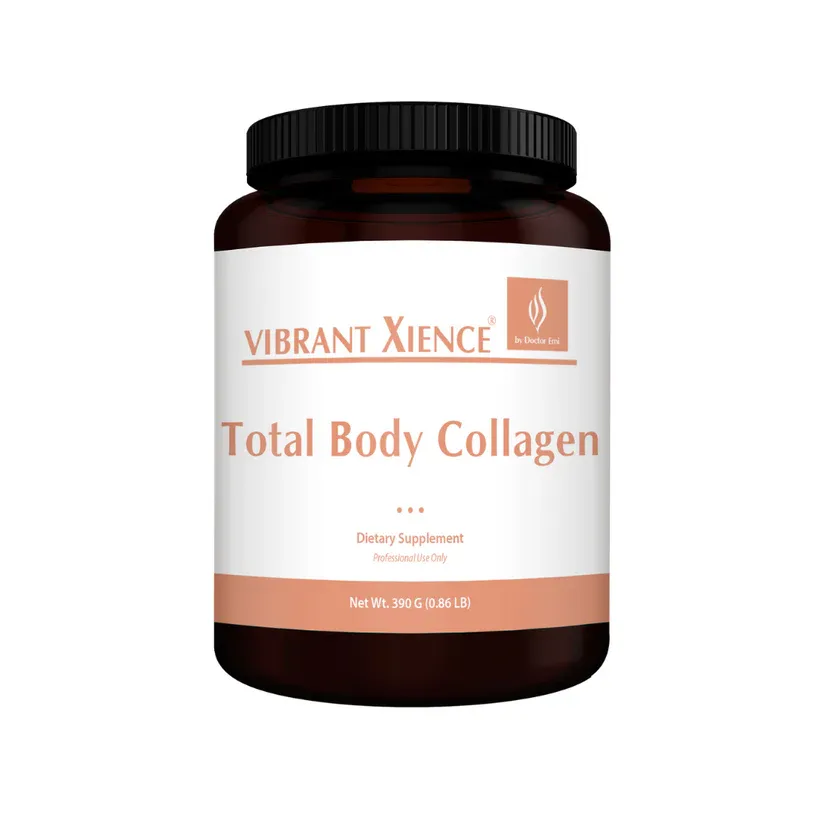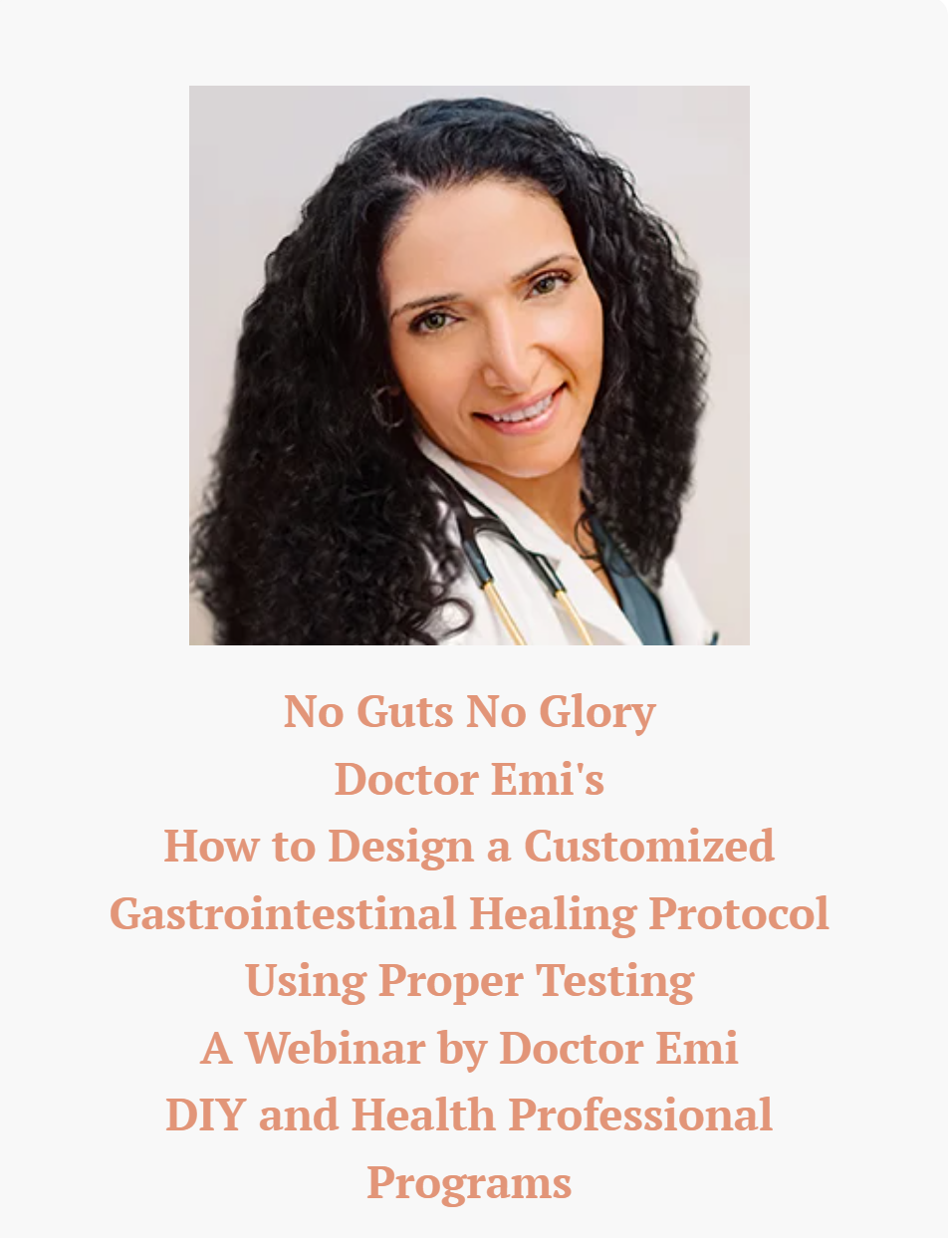Part 2: Uncovering the Causes of Leaky Gut
Welcome back, health warriors! Dr. Emi here, ready to dive into Part 2 of our leaky gut series. Last time, we talked about what leaky gut is and why it's such a big deal for your overall health. Today, we're going to uncover the sneaky culprits behind this common problem. Buckle up – some of these might surprise you!
The Antibiotic Dilemma
Let's start with a big one: antibiotics. Now, don't get me wrong – antibiotics can be lifesavers when we really need them. But here's the thing: in our society, we tend to overuse them, and that's causing some serious problems for our gut health.
Every time you take antibiotics, you're not just killing off the bad bacteria – you're also wiping out a lot of the good guys in your gut microbiome. It's like using a grenade to kill a mosquito – effective, but with a lot of collateral damage.
This disruption in your gut bacteria can lead to increased intestinal permeability[1]. So if you've been on multiple rounds of antibiotics, especially if it was recently or if you take them chronically, your gut barrier might be feeling the effects.
The Pesticide Problem
Here's another modern issue that's wreaking havoc on our gut health: herbicides and pesticides. These chemicals are designed to kill insects and weeds, but guess what? They're not too friendly to the cells lining our gut either.
When we consume foods that have been treated with these chemicals, we're exposing our gut lining to substances that can damage it and increase permeability[2]. It's one of the reasons I'm such a big advocate for organic produce when possible.
But I know what you're thinking – "Dr. Emi, organic food is expensive!" And you're right, it can be. That's why I want to introduce you to a couple of tools that can help you make smarter choices without breaking the bank:
- The Dirty Dozen and Clean 15: These lists, updated annually by the Environmental Working Group (EWG), can help you prioritize which foods to buy organic[19][20][21]. The Dirty Dozen are the fruits and vegetables that tend to have the highest pesticide residues, while the Clean 15 typically have the lowest. By focusing on buying organic for the Dirty Dozen and conventional for the Clean 15, you can significantly reduce your pesticide exposure without having to buy everything organic.The Dirty Dozen typically includes foods like strawberries, spinach, kale, nectarines, and apples[19]. The Clean 15 often features avocados, sweet corn, pineapples, onions, and papaya[20]. Remember, these lists are updated annually, so it's worth checking for the most current information.
- Pesticide Removal Techniques: Even if you can't always buy organic, there are ways to reduce pesticide residues on your produce. Here are some evidence-based techniques:a) Vinegar Soak: Soaking fruits and vegetables in a solution of 10% white vinegar and 90% water for 20 minutes can reduce pesticide residues[22]. After soaking, rinse thoroughly with clean water.b) Baking Soda Wash: A study published in the Journal of Agricultural and Food Chemistry found that soaking apples in a solution of baking soda and water (1 teaspoon of baking soda per 2 cups of water) for 12-15 minutes was even more effective than vinegar in removing pesticide residues[23].c) Salt Water Soak: For fruits and vegetables with thicker skins, soaking in 2% salt water for 20 minutes can help remove some pesticide residues[24].d) Peeling: While this isn't always desirable as it can remove beneficial nutrients found in the skin, peeling fruits and vegetables can significantly reduce pesticide residues[25].e) Thorough Washing: While it might seem obvious, a thorough wash under running water can remove a significant amount of pesticide residues, especially for produce with smooth surfaces[26].
Remember, no washing method is 100% effective in removing all pesticides, but these techniques can significantly reduce your exposure. And don't forget to wash your organic produce too – it can still carry dirt, bacteria, and in some cases, organic-approved pesticides.
By combining these strategies – prioritizing organic for the most contaminated foods and using effective washing techniques – you can significantly reduce your exposure to harmful pesticides and herbicides, supporting your gut health without overstretching your budget.
The Food Factor
You've probably heard the saying "you are what you eat," right? Well, when it comes to leaky gut, it's more like "your gut is what you eat." Let's break down some of the dietary factors that can contribute to leaky gut:
- Preservatives: Some preservatives, like BHT, are free radicals. Picture these as rowdy teenagers at a party, bouncing around and causing damage wherever they go. In your gut, they can wreak havoc on the delicate cell lining[3].
- Simple Sugars: A diet high in simple sugars and low in nutrients can alter your gut microbiome, promoting the growth of harmful yeasts and bacteria. This imbalance can damage your gut lining over time[4].
- Lectins: This one's a bit controversial. Lectins are proteins found in many plants, and in some people, high amounts can irritate the gut lining. But it's not all bad – lectins have also been shown to have some health benefits, like potentially reducing cancer risk[5]. If you're concerned about lectins, methods like pressure cooking can reduce their effects.
- Mold-Prone Foods: For some people, especially those with a genetic sensitivity to mold, certain foods can be problematic. Mold toxins, or mycotoxins, can contribute to gut inflammation and increased intestinal permeability[16]. Foods that are prone to mold contamination include:
- Corn and corn products
- Peanuts and peanut butter
- Some aged cheeses
- Dried fruits
If you're sensitive to mold, it's crucial to be cautious with these foods and ensure they're stored properly to prevent mold growth.
- High Oxalate Foods: Oxalates are compounds found naturally in many foods, and while they're not a problem for everyone, some people might have issues processing them. High levels of oxalates can contribute to gut irritation and inflammation[17]. Some high oxalate foods include:
- Spinach[27]
- Almonds and other nuts
- Rhubarb
- Chocolate
- Soy and soy products[28]
If you suspect oxalates might be an issue for you, it's best to work with a healthcare provider to safely reduce your intake, as cutting them out suddenly can sometimes cause more problems.
For a more in-depth look at oxylates see my blog post below:

- High Histamine Foods: Histamine is a compound involved in immune responses, but some people have trouble breaking it down efficiently. When histamine builds up in the body, it can contribute to inflammation and gut permeability[18]. High histamine foods include:
- Fermented foods (sauerkraut, kombucha, aged cheeses)
- Cured meats
- Certain fish (especially if not super fresh)
- Avocados and eggplants
If you notice symptoms like headaches, flushing, or digestive issues after eating these foods, you might want to explore whether histamine could be playing a role in your gut health.
The Hidden Infections
Here's something that often gets overlooked: hidden infections. Many people are walking around with low-grade bacterial overgrowths or parasitic infections that aren't caught by standard testing. These sneaky invaders can damage your gut barrier over time[6].
In conventional medicine, the go-to treatment for these infections is often... you guessed it, antibiotics. And we're back to square one with disrupting the gut microbiome. That's why in functional medicine, we often use herbs and dietary interventions to address these issues without causing further damage to the gut.
Stress: The Silent Gut Killer
I can't talk about gut health without mentioning stress. In our fast-paced world, chronic stress has become the norm for many people. But your gut doesn't like stress any more than your mind does.
Chronic stress can directly increase intestinal permeability[7]. It also alters blood flow to the gut, impacts the nerves controlling gut function, and changes the composition of your gut bacteria. All of these factors can contribute to leaky gut.
Environmental Toxins
We're exposed to a cocktail of environmental toxins every day – from the air we breathe to the products we use on our skin. Many of these toxins can damage the gut lining when they make their way into our digestive system[8].
Some common culprits include:
- Heavy metals
- Plastics (BPA and its alternatives)
- Air pollution
- Certain food additives
Nutritional Deficiencies
Sometimes, it's not what you're eating, but what you're not eating that's the problem. Certain nutrients are crucial for maintaining a healthy gut barrier:
- Vitamin D[9]
- Zinc[10]
- Omega-3 fatty acids[11]
- Glutamine[12]
- Collagen[13]
If your diet is low in these nutrients, your gut barrier might not have the building blocks it needs to stay strong and intact.
Alcohol and NSAIDs
I hate to be a party pooper, but excessive alcohol consumption can seriously damage your gut lining[14]. It's not just about the occasional glass of wine – I'm talking about regular, heavy drinking.
Non-steroidal anti-inflammatory drugs (NSAIDs) like ibuprofen can also increase gut permeability when used frequently or in high doses[15]. If you're popping these pills regularly for pain relief, you might be unknowingly contributing to gut issues.
Are You at Risk?
After reading all this, you might be thinking, "Am I at risk for leaky gut?" Here are some factors that might increase your chances:
- You've been on multiple rounds of antibiotics
- You eat a lot of processed foods high in sugar and preservatives
- You're under chronic stress
- You have a history of food poisoning or traveler's diarrhea
- You consume alcohol frequently or in large amounts
- You use NSAIDs regularly
- You have a known autoimmune condition
- You've been diagnosed with IBS or other digestive disorders
- You have sensitivities to mold, oxalates, or histamines
If several of these apply to you, it might be worth investigating whether leaky gut is playing a role in your health issues.
What's Next?
Now that we've uncovered the potential causes of leaky gut, you might be wondering, "How do I know for sure if I have it? And what can I do about it?"
Great questions! In the next and final part of our series, we'll dive into how to test for leaky gut and, more importantly, what you can do to start healing your gut and reclaiming your health.
Stay tuned, and remember – knowledge is power, especially when it comes to your health. By understanding what might be causing your gut issues, you're already on the path to healing.
Until next time, be kind to your gut!
– Dr. Emi
References:
[1] Tulstrup, M. V. L., Christensen, E. G., Carvalho, V., Linninge, C., Ahrné, S., Højberg, O., ... & Bahl, M. I. (2015). Antibiotic treatment affects intestinal permeability and gut microbial composition in Wistar rats dependent on antibiotic class. PloS one, 10(12), e0144854.
[2] Leme, M., Duarte, M. F., Freire, C., & Alegria, A. (2020). Pesticides and Human Health. Frontiers in Public Health, 8, 568.
[3] Lerner, A., & Matthias, T. (2015). Changes in intestinal tight junction permeability associated with industrial food additives explain the rising incidence of autoimmune disease. Autoimmunity reviews, 14(6), 479-489.
[4] Do, M. H., Lee, E., Oh, M. J., Kim, Y., & Park, H. Y. (2018). High-glucose or-fructose diet cause changes of the gut microbiota and metabolic disorders in mice without body weight change. Nutrients, 10(6), 761.
[5] de Punder, K., & Pruimboom, L. (2013). The dietary intake of wheat and other cereal grains and their role in inflammation. Nutrients, 5(3), 771-787.
[6] Camilleri, M. (2019). Leaky gut: mechanisms, measurement and clinical implications in humans. Gut, 68(8), 1516-1526.
[7] Kelly, J. R., Kennedy, P. J., Cryan, J. F., Dinan, T. G., Clarke, G., & Hyland, N. P. (2015). Breaking down the barriers: the gut microbiome, intestinal permeability and stress-related psychiatric disorders. Frontiers in cellular neuroscience, 9, 392.
[8] Lerner, A., Jeremias, P., & Matthias, T. (2015). The world incidence and prevalence of autoimmune diseases is increasing. International Journal of Celiac Disease, 3(4), 151-155.
[9] Assa, A., Vong, L., Pinnell, L. J., Avitzur, N., Johnson-Henry, K. C., & Sherman, P. M. (2014). Vitamin D deficiency promotes epithelial barrier dysfunction and intestinal inflammation. The Journal of Infectious Diseases, 210(8), 1296-1305.
[10] Skrovanek, S., DiGuilio, K., Bailey, R., Huntington, W., Urbas, R., Mayilvaganan, B., ... & Mullin, J. M. (2014). Zinc and gastrointestinal disease. World journal of gastrointestinal pathophysiology, 5(4), 496.
[11] Costantini, L., Molinari, R., Farinon, B., & Merendino, N. (2017). Impact of omega-3 fatty acids on the gut microbiota. International journal of molecular sciences, 18(12), 2645.
[12] Wang, B., Wu, G., Zhou, Z., Dai, Z., Sun, Y., Ji, Y., ... & Wu, Z. (2015). Glutamine and intestinal barrier function. Amino acids, 47(10), 2143-2154.
[13] Chen, Q., Chen, O., Martins, I. M., Hou, H., Zhao, X., Blumberg, J. B., & Li, B. (2017). Collagen peptides ameliorate intestinal epithelial barrier dysfunction in immunostimulatory Caco-2 cell monolayers via enhancing tight junctions. Food & function, 8(3), 1144-1151.
[14] Bishehsari, F., Magno, E., Swanson, G., Desai, V., Voigt, R. M., Forsyth, C. B., & Keshavarzian, A. (2017). Alcohol and gut-derived inflammation. Alcohol research: current reviews, 38(2), 163.
[15] Bjarnason, I., & Takeuchi, K. (2009). Intestinal permeability in the pathogenesis of NSAID-induced enteropathy. Journal of gastroenterology, 44(19), 23-29.
[16] Liew, W. P., & Mohd-Redzwan, S. (2018). Mycotoxin: Its Impact on Gut Health and Microbiota. Frontiers in cellular and infection microbiology, 8, 60.
[17] Joneja, J. V. (2019). The role of intestinal permeability in food allergy. Annals of Allergy, Asthma & Immunology, 123(6), 595-604.







